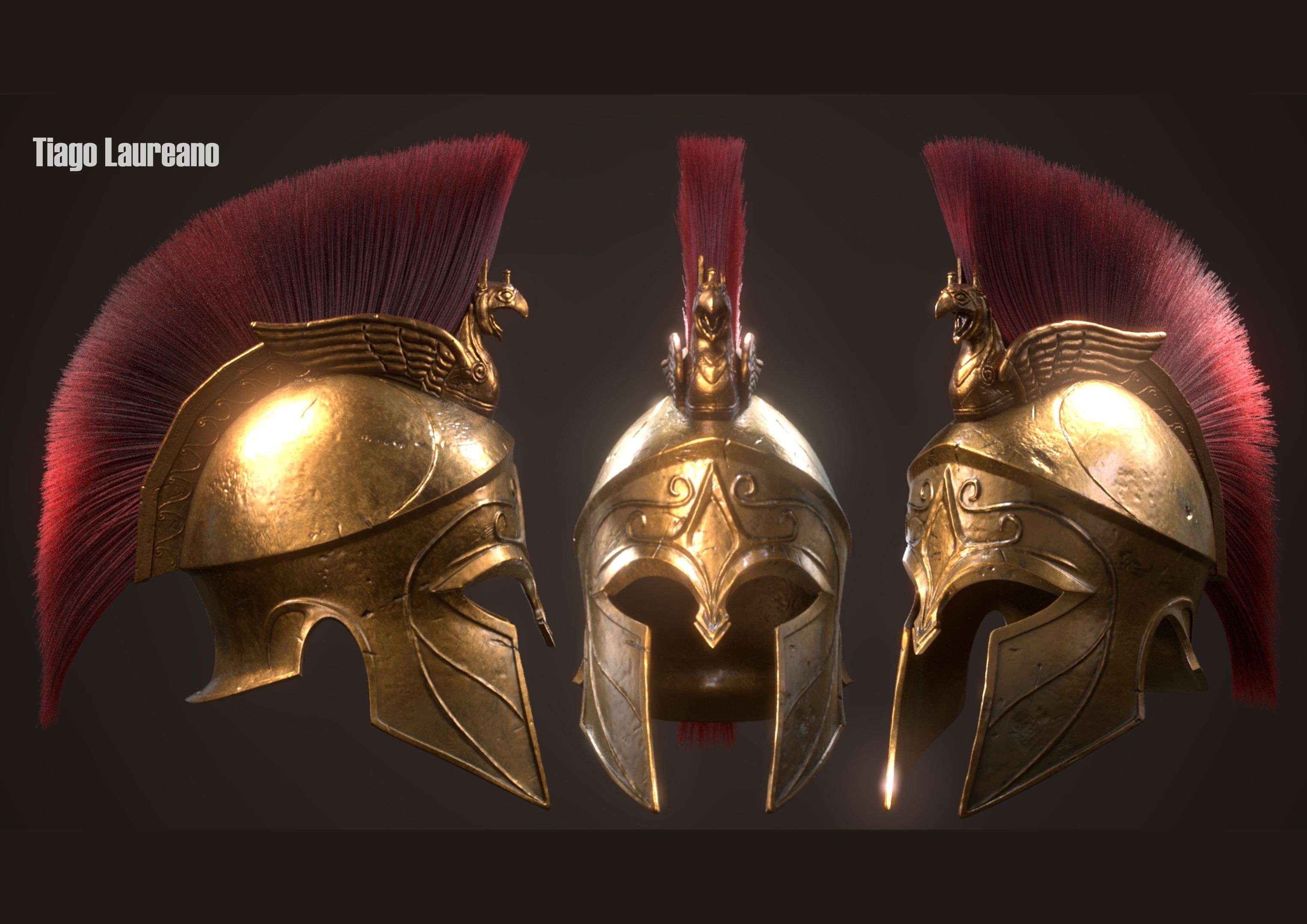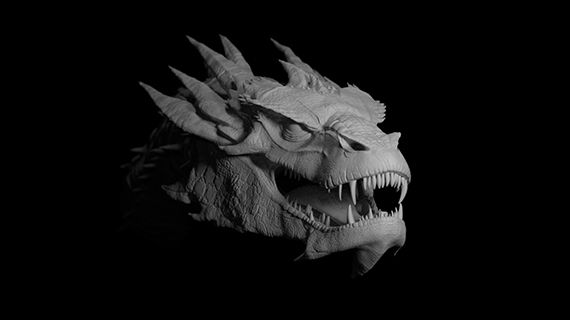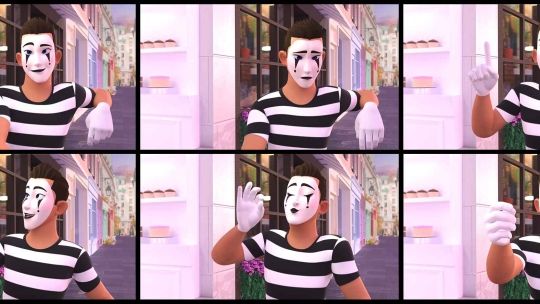BA (Hons) Visual Effects (Online)
- Study Mode: Full Time
- Location: Distance Learning
- Duration: Three Years
- Start Date: September 2024
You can also study this course:
Visual Effects (VFX) is a continually evolving and exciting subject that is applied in many different areas of the industry, including film, television, games and commercials. This course presents you with an opportunity to study Visual Effects with a focus on professional practice. It is designed to give you the fundamental skills required and enhance your employment opportunities in the VFX industry by creating a strong portfolio of work to display your talent in a diverse range of relevant skills.
Using the latest techniques in 3D computer graphics you’ll use industry standard software to learn how to create stunning objects and characters, and how to put these into real life footage to make believable scenes that will wow audiences around the world.


Why study this subject?
Whether it is 3D, FX techniques or digital sculpting, a skilled Visual Effects artist can create the illusion of real life. In this industry all roles call for high levels of creativity and passion for storytelling. Your skills will be valuable in any Visual Effects role, including but not limited to:
- Commercials
- Films
- Games
- Architectural Visualisation


Why study at Buckinghamshire New University?
At Buckinghamshire New University we focus on preparing you for work in the industry, helping you to stand out to employers when you graduate. With the right teaching and learning opportunities, it’s possible to turn your passion for animation into a rewarding and successful career.
Led by our enthusiastic and dedicated team of industry-savvy practitioners and experienced academics, you will have the freedom to explore all areas of visual effects. During your time with us you may also get access to guest lectures and can benefit from live project briefs, masterclasses and plenty of networking opportunities.
On this dynamic course you’ll have access to all the industry-standard equipment you need to bring your ideas to life. Our small group sizes enable staff and students to work together as a friendly and collaborative community of learners. It also means you’ll benefit from more one to one support with your lecturer.
Opportunity modules are a key part of the BNU curriculum. You’ll choose modules in your first year from a broad selection in areas such as sustainability, entrepreneurship, creativity, digital skills, personal growth, civic engagement, health & wellbeing and employment. Opportunity modules are designed to enable you to develop outside the traditional boundaries of your discipline and help you to further stand out from the crowd to future employers.
What facilities can I use?
Whilst studying with us you will use our BucksAnywhere web service, which provides access to many of the software applications you use for learning and studying. BucksAnywhere can be used from your own device or from a University owned PC or laptop, from any location. We’ve made sure you have access to industry-standard software, which we review yearly to ensure we are producing industry-ready graduates. Some of which includes:
- Unreal Engine
- Unity
- Maya
- 3DS Max
- Substance Suite
- Zbrush
Amongst a range of other software.
You’ll also be able to remotely access our VDI, which is a powerful computer that will give you access to additional software relevant to the course.
What will I study?
We've structured the course to build up your skills during your time with us and you'll learn everything you need to know to be career-ready upon graduation. Starting with the fundamentals, we'll help you develop CGI and animation skills to a professional level, and cover everything you'll need to create realistic scenes and believable, engaging characters.
You’ll use 3D modelling to create objects and characters and learn about the pipeline of a professional project. Throughout your degree, you’ll learn how to integrate your objects and characters into existing footage to create stunning scenes, which could even include destruction simulation You’ll also learn how to build an organic character using industry standard sculpting and character FX techniques.
By your final year, you’ll have found the specialism you want to focus on in the industry. Your projects will give you the opportunity to hone your skills, work in realistic industry scenarios and have opportunities to collaborate with students on other creative courses at the University.


How will I be taught and assessed?
Our BNU teaching team are industry professionals, with years of experience working in the sector and training future generations of animators. Through their support and the course you’ll gain the skills and knowledge you need within the industry.
You’ll spend time learning and practicing the skills required by each unit before undertaking summative assessments the form of projects which will enable you to apply and combine their newfound skills together in a meaningful way while tackling tasks commonly found in the industry.
You’ll be taught via online classes and 1:1s supported by a virtual learning environment (VLE) which will serve as a repository for course materials and other essential information such as assignment briefs, in line with university policy.
You will be given access to synchronous sessions each week of termtime with a lecturer who will be online throughout. During these sessions, you will also have the opportunity to ask questions and get real time responses and feedback from lecturers and other learners. Normally these will begin with a group seminar or demonstration and then break into 1:1s where you will have the opportunity to discuss your individual progress directly with their lecturer. Sometimes these seminars will be used for presentations and review in a manner that mimics the dailies process in industry.
In addition to this there will be video based lecture content focused on the demonstration of essential skills and clarification and expansion of key concepts and techniques.
This will be facilitated via the online learning platform, where you will be able to access a set of recorded lectures which will be an average of 10 minutes in length. These will be delivered as appropriate to each individual module.
Other learning techniques that will be employed appropriately to the situation include:
- Demonstrations for new techniques
- Group work
- Video feedback
- Peer review
- Use of books, magazines, video and online resources
- Research methods
You will regularly be set formative tasks related to the weekly content or be working towards your own project objective as agreed with the lecturers. This will enable you to apply your learning in new contexts. You will also be able to submit your work for asynchronous formative review from the lecturer which will be delivered as a video commentary on your work.
You will also be expected to join a closed online group where you will be able to discuss the work and ask questions throughout the week. It is expected that both lecturers and students will contribute and answer questions. This will also be a place for you to post your work for peer discussion and review.
Assessments will be largely practical coursework along with critical analysis and evaluation which will come mainly in the form of essays and presentations. The practical elements will mimic the kind of work that junior artists will carry out in industry, as far as reasonably practicable.
What are the course entry requirements?
A typical offer will require a UCAS tariff score of: 88 - 112
UCAS points can be obtained through qualifications such as A levels, T levels, BTEC or an Access to Higher Education course in a relevant subject. Please list all your qualifications on the application form as you will be asked to provide copies when we receive your application.
A minimum of two full A-levels (or equivalent) is required. Every application is considered on an individual basis.
For further details of our international English entry requirements, please visit our international pages.
Applicants who do not meet the minimum requirements for the three-year undergraduate programme, or those who do not feel fully prepared for a degree course, can apply for a four-year programme including a Foundation Year; find out more.
Applicants will need to demonstrate portfolio work, further guidance is given below
Portfolio requirements
What are we looking for?
We want to see your best work, as chosen by yourself. You should select your favourite pieces and present these a format we can easily access, such as a pdf or mp4 sequence. Alternatively, you can link us to your own webpage which must be clearly identifiable as your own. When selecting your work try to convey a sense of who you are and what your interests are.
What sort of things could you include?
- We want to see the best of whatever you have done. While pieces of animation, visual effects and game art can be an advantage we are fundamentally looking for artistic sense / instinct which can be demonstrated in many other forms, including but not limited to:
- 3D Animation sequences
- 2D Animation sequences
- VFX sequences (done e.g. in After Effects or other similar software)
- A game level.
- 3D modelling – Renders or animated turnarounds of characters, environments, props etc.
- Photography – either traditional or digital.
- Life drawing
- Paintings
- Drawings / sketches.
- Sculptures.
- Digital art – e.g. created in Photoshop or other similar software.
- Short live action films or documentaries.
- Other - if you are in doubt contact the relevant course leaders.
How much should you include?
This depends on what you are submitting. If you have individual images / pictures / paintings, then no more than your favourite 12. If you have project work such as an animated sequence, a game level or short film then no more than your favourite 3 in mp4 format. If you wish to mix then 1 sequence = 4 images. So you could submit 1 mp4 sequence and 8 images on a pdf for example.
Any sequences should be preceded by titles showing your name and UCAS application number. The pdf should include the same at the top. Any physical formats should be carefully photographed or scanned and then compiled into a well presented pdf document. Remember how you present your work also says something about you so give this some thought and effort.
How to Submit your portfolio
Please send a link to your portfolio or email a PDF of your work to: steve.cassar@bucks.ac.uk
Modules
This provides a guide of the modules that make up your course. You can find more information about how your course is structured on our Academic Advice section.
You must choose 2 x 10 credit Level 4 Opportunity modules from the Opportunity module catalogue.
What are the tuition fees
Home
-
Home, Academic Year 2024 - 2025: £7,700 per year
International
-
Overseas/International, Academic Year 2024 - 2025: £7,700 per year
What are my career prospects?
Throughout your time with us we’ll support you on your journey to your chosen career. We’ll help you to develop crucial skills, encouraging you to become enterprising, employable and good leaders. We also help you find employment after graduation. Have a look at our Careers and Employability pages to find out more.
Our BA (Hons) Visual Effects course will help prepare you for a range of career possibilities in any sector which requires a VFX artist. Our recent alumni have gone onto work for:
- DNeg
- Framestore
- TT Games. (Warner Bros)
- Mediatonic Games
- FST
- Ubisoft
- Cinesite
- Airship Studios
Graduates from BNU’s animation courses have gone on to work in all six of the major VFX houses in the UK, as well as a number of major games houses and smaller companies. We have had winners and runners up in the Grads In Games Competition, which have then led to jobs. Our learners have worked on major films, games and TV productions, including Avengers Endgame.
Graduates can also choose to study for a postgraduate course.
Course leader













